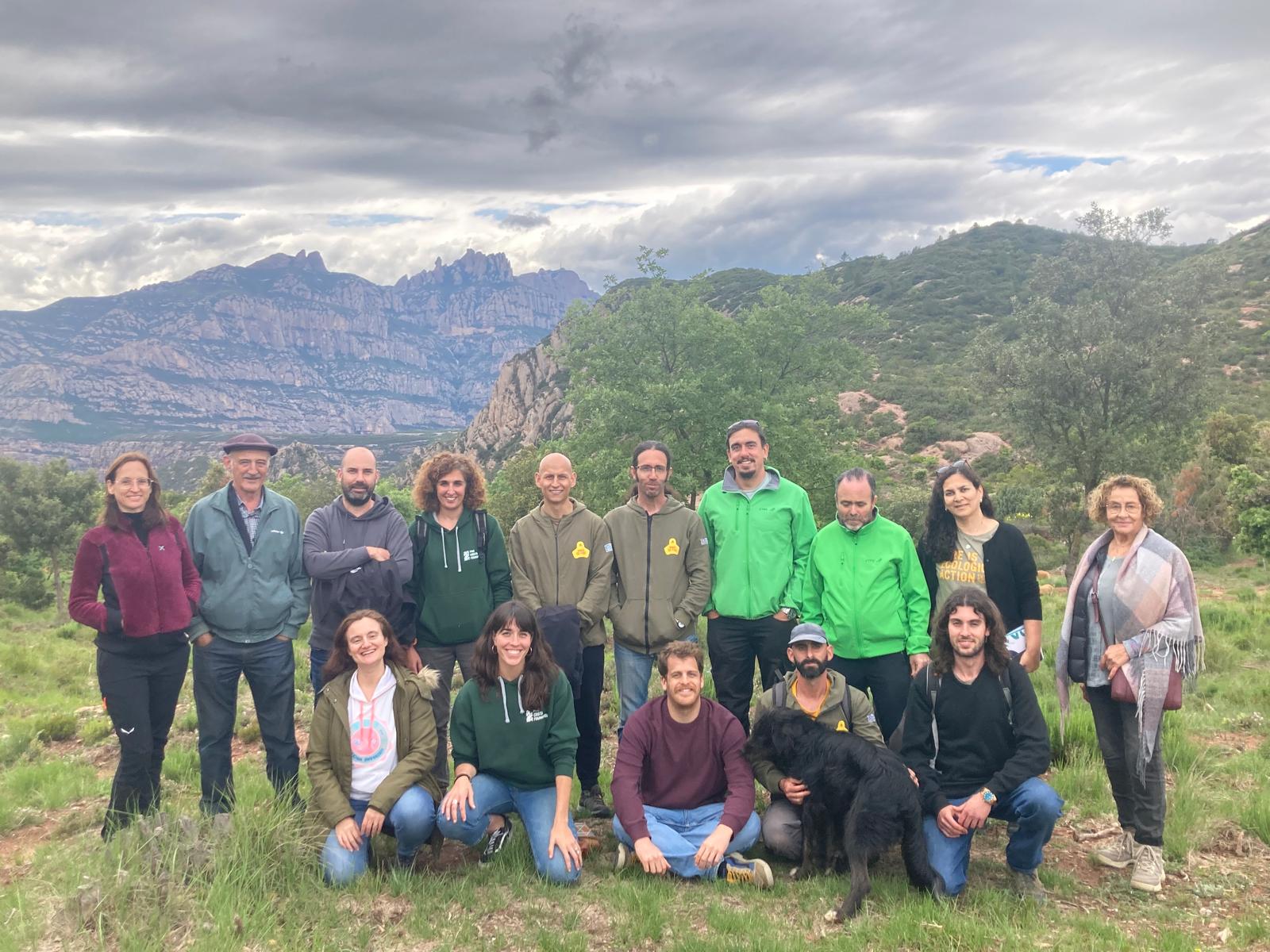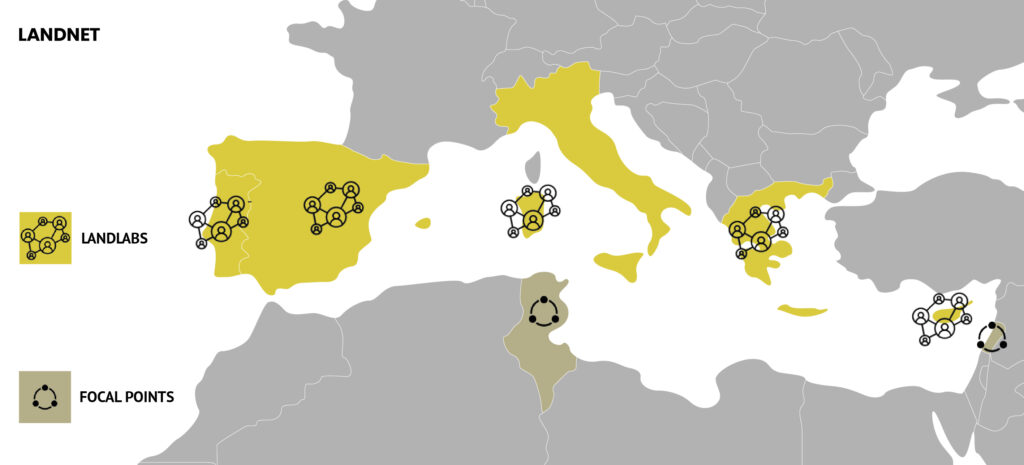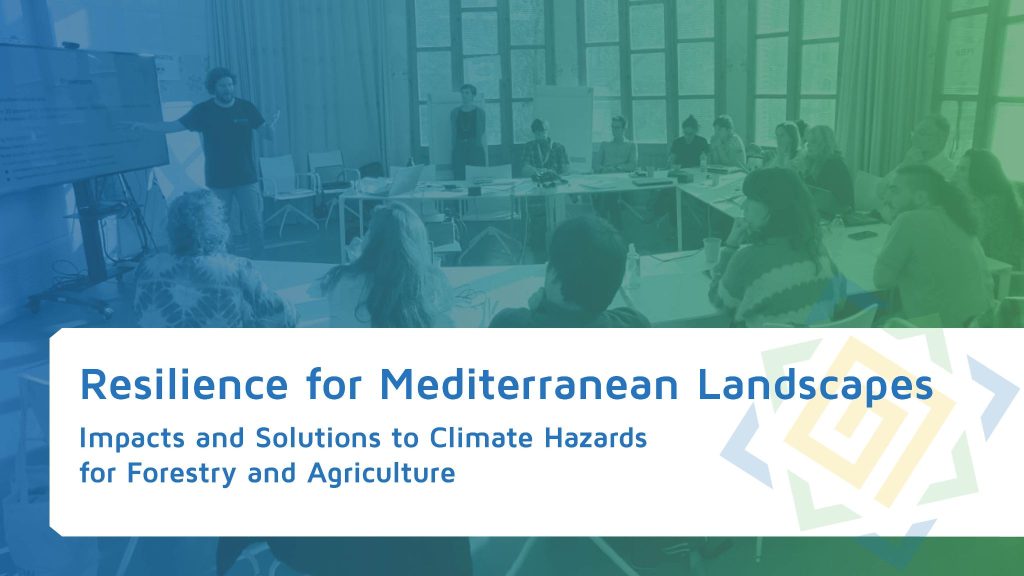
What are the LandLabs?
LandLabs are on-the-field laboratories focused on landscape resilience, located in five Mediterranean areas highly exposed to climate change hazards. The LandLabs operate on a regional scale to address the major impacts and challenges faced by farmers and foresters in each area.
To achieve this, the LandLabs will carry out various activities such as events, workshops, field trips, and demonstration showrooms. These activities are helping farmers and foresters identify and adapt the most suitable solutions for their specific regions.
Since the LandLabs have a strong regional focus and all activities will take place in person and in the local language, we encourage you to join the LandLab that is closest to you.
Developed as part of the ResAlliance Project, this free Massive Open Online Course (MOOC) brings you the latest knowledge on how climate hazards (wildfires, droughts, desertification, floods and pests) are impacting the Mediterranean region.
Explore the forefront of sustainable practices with ResAlliance! If you’re a trailblazer addressing climate change in the Mediterranean, share your innovative story through captivating videos or compelling written narratives.
Where are the LandLabs?
The LandLabs are located in five Mediterranean regions that are highly exposed to climate hazards: Sardinia (Italy), Catalonia (Spain), Peloponnese (Greece), Cyprus, and Região Norte (Portugal). In addition, two focal points—Lebanon and Tunisia—will also participate by sharing knowledge and expertise on how to address climate hazards in the Mediterranean region.
Each region has its own specific social needs and tailored solutions. Discover below what each LandLab is doing to promote landscape resilience.

Location: Trás-os-Montes e Alto Douro (Bragança and Vila Real) and Alto Minho sub-regions
Challenges: The region is greatly shaped by smallholding property and an agroforest mosaic landscape, characteristics that enhances resilience and adaptation to climate changes and other hazards, but simultaneously increase the challenges around management and governance. Together with a highly productive forest (wood and paper) and silvopastoral (meat with protected origin) sectors, different agroforest productions such as acorns, chestnuts, resin, mushrooms, honey, vineyards or cork are present. The establishment of economic ranks and increase added value around these productions are additional challenges.
Needs: Increase the society’s awareness of the rural landscape potential, reduce wildfire risk and other hazards, increase and demonstrate the profitable economic value from forest and agroforest areas, promote innovation around non-wood forest products, favour the adaptation of agriculture and forest species to climate change and promote adequate restoration management of ecosystems, such as the ones affected by climate change, wildfires and other hazards.
Location: Baix Llobregat and Alt Penedès counties
Challenges: Agricultural or dense forest landscapes entangled, in some cases, within high-density urban and industrial areas
Needs: Promote forest practices to reduce the vulnerability to wildfires and drought, foster agricultural practices to reduce the exposure to drought and high temperatures and restoration of mosaic patterns landscape for climate change adaptation
.
Location: Forest districts of Goceano/Gallura and Grighine/Montiferru
Challenges: High dependency on the extraction and production of cork, which is reduced by drought; forest fires and lack of awareness of the local population
Needs: Improving forecasting systems for planning cork extraction; identifying how these areas can be supported to ensure a profitable economic value from cork and olive growing; raising awareness against wildfire events, specifically within wildland-urban interfaces; engaging local people to promote best restoration and disaster management practices
Location: Peloponnese peninsula
Challenges: Enhance landscape resilience against wildfires, second highest in Greece
Needs: Awareness and knowledge on integrated land management approaches to strengthen the areas of agricultural production (wine and olives, honey); increasing local farmers and foresters’ awareness of wildfire risks and mitigation and adaptation measures, especially in realtion of production methods; supporting the development of policies to improve landscape resilience to climate change
Location: Troodos mountains and Akamas National Forest Park
Challenges: Dryness, high temperatures, abandonment of rural areas and lack of managed forests leading to high risks of large wildfires; legislative and administrative fragmentation which halt the application of integrated and innovative landscape management solutions
Needs: Promoting the development of the primary sector and rural areas and using ancestral forestry knowledge and holistic landscape management
Why join the LandLabs?
By joining the LandLab, you will:
- Become part of a network: 5 laboratories that allow you to get to know other subjects in the agricultural and forestry sector, and exchange with them knowledge and good practices developed in the area;
- Bring your own story: have the opportunity to personally contribute to new strategies for your own territory;
- Participate in LandLabs events: where you will have the chance to get information on emerging results;
- Have access to our free online course “Resilience for Mediterranean landscapes”: designed to help you understand climate hazards in the Mediterranean and explore innovative solutions for agriculture and forestry.
- Have access to our forum: where you can discuss any relevant topic on landscape resilience, ask questions and gain insight from experts in the field from our team of researchers.
